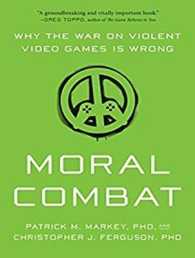Full Description
This book explores the normative dimensions of the acts that constitute international crimes. The book conceptualises the normative dimensions of these acts as processes of construction and meaning making. Developing a novel methodological approach, it identifies the narratives and discourses that emerge in practice as central for understanding the normative meanings of these acts. Using the crimes of attacks on cultural property, pillage, sexual violence and reproductive violence as case studies, the book offers a historical, conceptual, and discursive analysis of these crimes to develop a dynamic, pluralist and socially constructed account of wrong in international criminal law.
Contents
Acknowledgments
Introduction
1 Theoretical Framework
1 International Criminalisation as Constitutive Process
1.1 Durkheim and the Productive Politics of Criminal Law
1.2 Crimes as Public Wrongs: Thinking Backwards
1.3 Domestic Theories of Criminalisation: Form without International Content
2 International Criminal Law as Discursive Project
2.1 Expressive Theories of International Criminal Law
2.2 Law as Discourse and Narrative
3 Methodological Approach
3.1 Selection of Crimes
3.2 Methodology
3.2.1 Historical-Normative Roots
3.2.2 Legal Definitions
3.2.3 Normative Themes in the Case Law
3.2.4 Narratives During Proceedings
2 Attacks on Cultural Property
1 Historical-Normative Roots in International Law
2 Definitions of Attacks on Cultural Property in International Criminal Law
2.1 icty Statute
2.2 Rome Statute
2.3 eccc
3 Normative Themes in the Case Law
3.1 Cultural Property as a Normatively Distinct Category
3.2 Cultural Internationalism
3.3 Object-Centrism
3.4 Functionalism
3.4.1 Functions
3.4.2 Social Meaning
3.4.3 Emotions
4 Narratives of Cultural Value During Trial Proceedings
4.1 International Public Opinion
4.2 Remodelling the Landscape
4.3 Individuals and Cultural Property
4.4 Social and Religious Practices
4.5 'Like Beings without Soul, History or Memory'
4.6 Living Buildings
5 Conclusion
3 Pillage
1 Historical-Normative Roots in International Law
2 Definitions of Pillage in International Criminal Law
2.1 Legal Elements
2.2 Gravity
2.3 Pillage as Persecution
3 Normative Themes in the Case Law
3.1 Scale
3.2 Use Value
3.3 Ownership
4 Narratives During Proceedings
4.1 Subsistence and Survival
4.2 Culture and Emotion
5 Conclusion
4 Sexual Violence
1 Historical-Normative Roots in International Law
2 Definitions of Rape and Sexual Violence in International Criminal Law
2.1 Consent vs. Coercive Circumstances
2.2 Violence and Aggression
2.3 Human Dignity
2.4 Sexual Autonomy
3 Normative Themes in the Case Law
3.1 Normative Statements
3.1.1 Physical and Moral Integrity
3.1.2 Sexual Autonomy and Integrity
3.2 Normative Themes
3.2.1 Rape as a Weapon of War
3.2.2 Harm to the Conjugal Order
3.2.3 Shame and Stigma
3.2.4 Virginity
3.2.5 'The Sexual' is Private
4 Narratives During Roceedings
4.1 The Suffering Body
4.2 'I Felt Dignified and Proud'
4.3 Sexual Subjectivity
5 Conclusion
5 Reproductive Violence
1 Historical-Normative Roots in International Law
2 Definitions of Reproductive Violence in the Rome Statute
2.1 Forced Pregnancy
2.2 Enforced Sterilization
3 Normative Themes in the Case Law
3.1 No Rights, No Crime
3.2 Intent: Beyond Ethnic Groups
3.3 Reproductive Autonomy and Rights
4 Narratives During Proceedings
4.1 Did you have a Choice?
4.2 Harms
5 Conclusion
6 Conclusion
1 Making Crimes Mean
1.1 Meaning Making as Continuum
1.2 Diversity of Interests
1.3 Foundation Building
2 International Criminal Wrong as Flexible and Dynamic
2.1 Legal and Normative Pluralism
2.2 Criminal Wrong as Socially and Politically Situated
2.3 Legitimation
Appendix 1 Decisions
Appendix 2 Key Words
Appendix 3 Transcripts
Bibliography
Index







